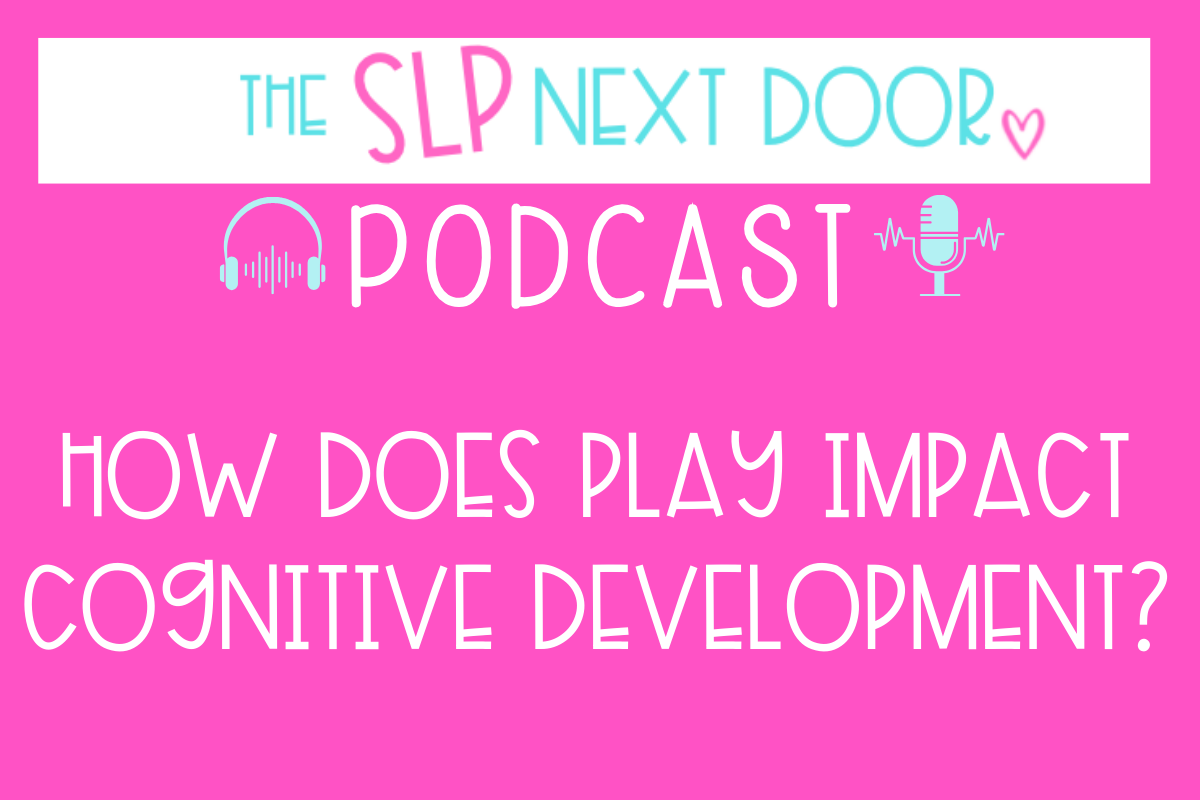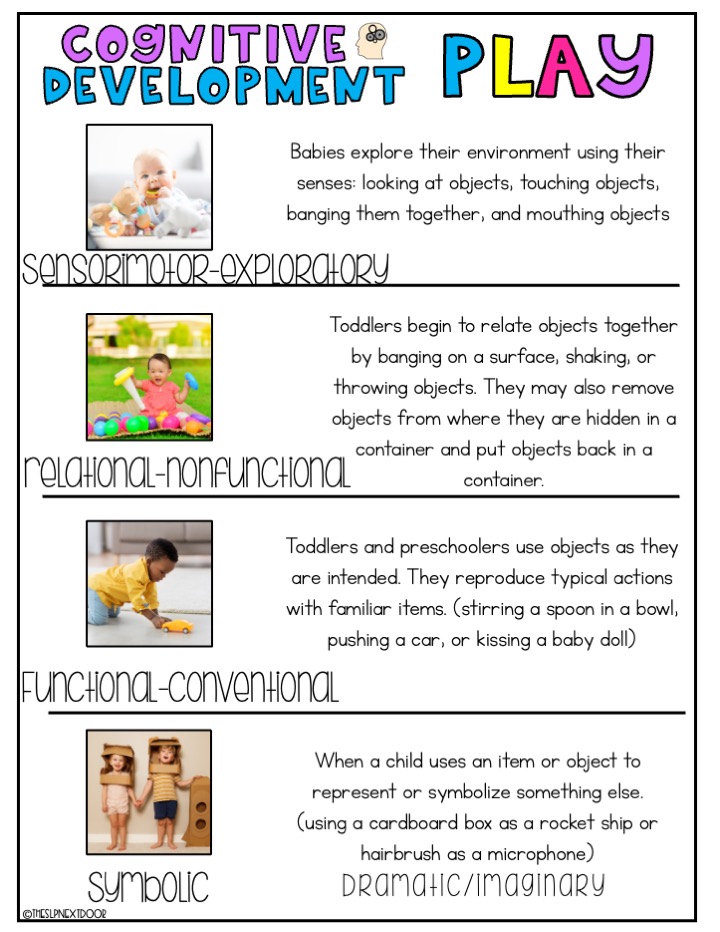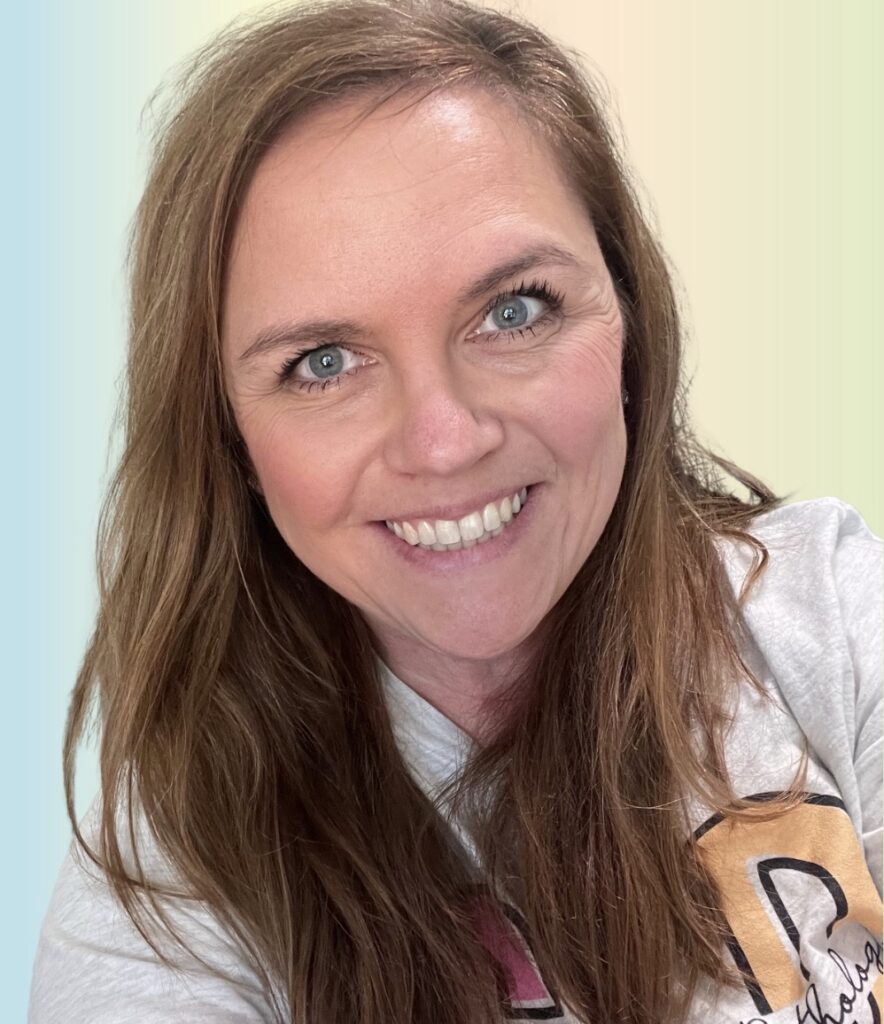Piaget, Vygotsky, and Smilansky. These are the top researchers (along with Parten) cited when understanding how play impacts cognitive development in early childhood.
Vygotsky’s research says children are born with basic cognitive functions and build/grow their cognitive abilities through social interactions and adult experiences. He believes talking to children and exposing them to new things, concepts, environments, etc., is very important for their development. Vygotsky doesn’t divide the progression of development into stages.
Piaget believed that all children progress through the same stages in terms of cognitive development. They may move through the stages at different paces, but they all move through them. He believed that children’s interactions with their world encourage their development.
Smilansky– took Piaget’s work on cognitive development and built on it, essentially specified it. Her stages of play include: Functional (practice) Play, Constructive play, Dramatic/Symbolic Play, Games with Rules
When you combine all of the research and findings, here’s what you get:
- Sensorimotor-Exploratory Play
- Relational-Nonfunctional Play
- Functional-Conventional Play
- Symbolic Play
What do all of these stages of play have in common with the social stages of play? They demonstrate the progression of development over time. As with the social stages: babies begin playing by exploring their world and the objects in their world.
As cognitive skills develop, so do the social and language side of things. Babies move from playing with the blocks to stacking blocks with you and then start taking turns knocking the block tower over amidst all the belly laughs.



